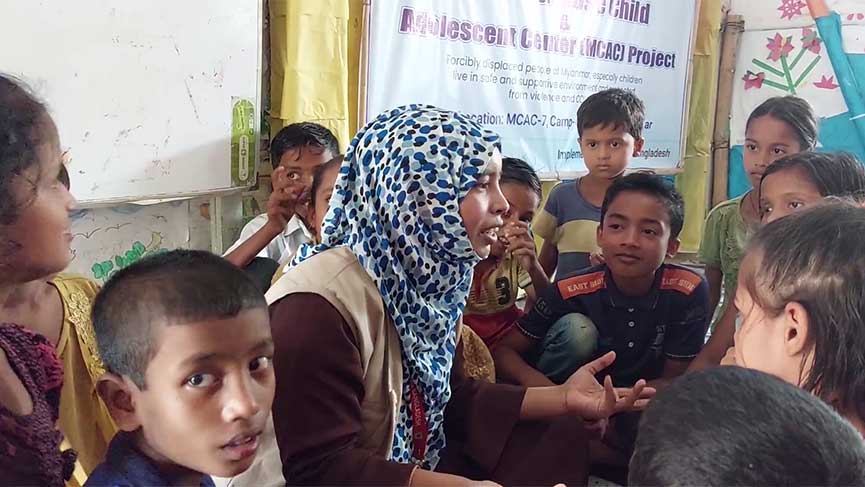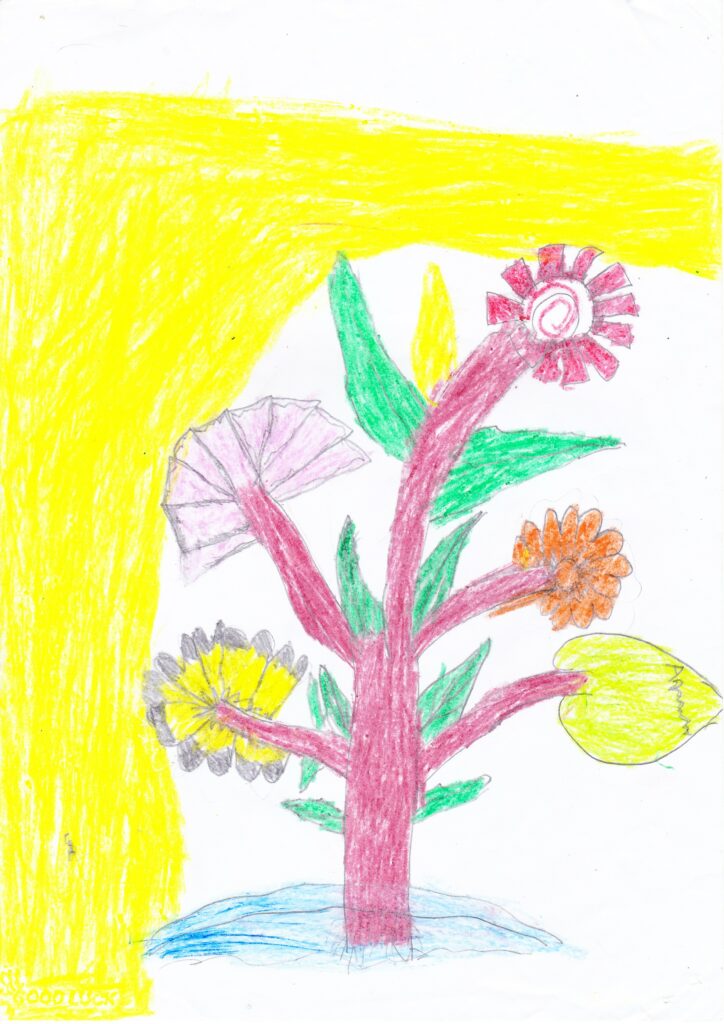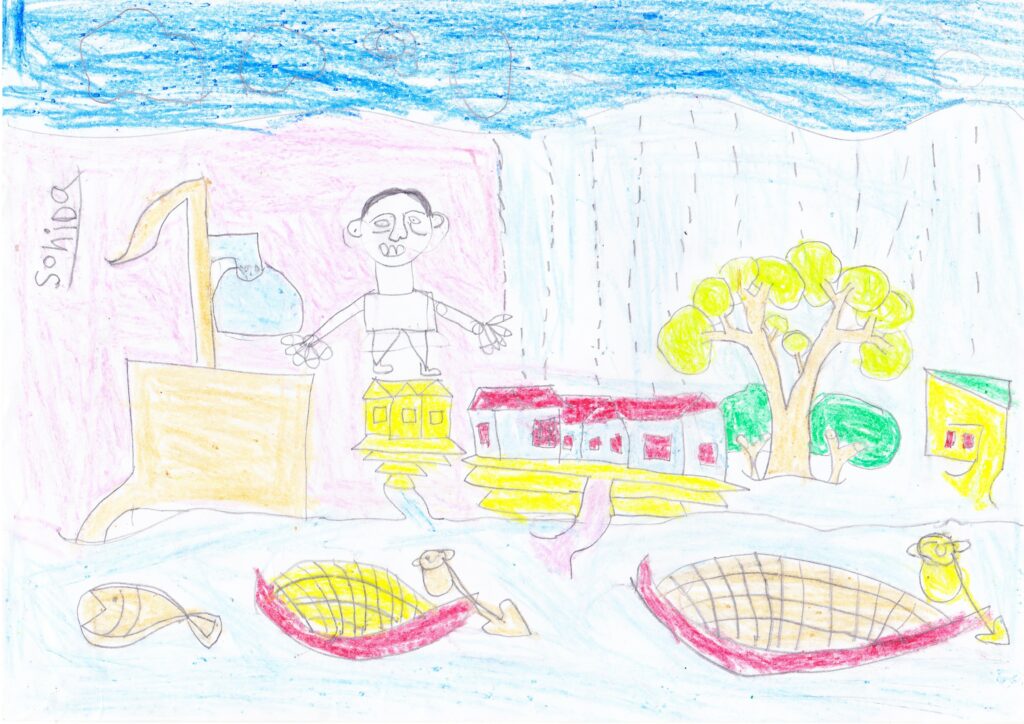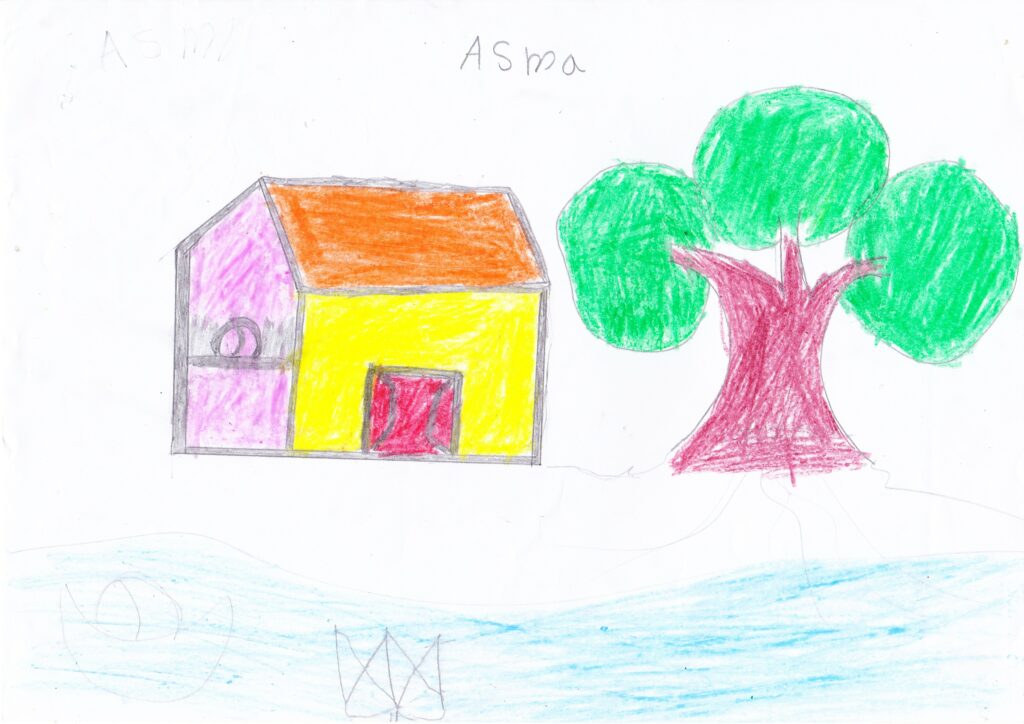An Advent of blossoming: the story of Jannatul Riaju

National
In November 2022, Caritas Bangladesh invited Development and Peace and other Caritas Internationalis members to an international partners’ meeting to help review its emergency response program for Rohingya refugees. Delegates visited the camps in Cox’s Bazar that house the world’s single largest refugee population. This year’s Advent stories were gathered in and around those refugee camps.
Caritas Canada - By Minaz Kerawala, Communications and Public Relations Advisor
"Listen to me, my faithful children, and blossom like a rose growing by a stream of water." ―Sirach 39:13
They sing loudly and happily, dancing around her in a circle. They listen, rapt and wide-eyed, as she animatedly tells a story. Her gestures and expressions have them enthralled, giggling and squealing in delight! The children crowding around Jannatul Bakya Riaju could not love her more. But it was not always thus.
“At first, the little ones would not even look at me,” Riaju recalled. “Their parents did not trust us or want to send them to us.”
Riyaju did not take it personally. She knew that the Rohingya children who had fled to Bangladesh had probably seen too many horrors in Burma (Myanmar) to be trusting and open or to even think of fun as a possibility.
A hardscrabble life
Minors account for more than half of the nearly one million Rohingyas who live in the world’s largest refugee camp cluster in Cox’s Bazar, Bangladesh. “And a refugee camp is not a place where children can thrive,” said Mosharraf Hossain, Caritas Bangladesh’s protection services manager.
Hossain enumerated their disadvantages. Their parents cannot work except under strictly limited conditions, so their families are desperately poor. They are traumatized by their experiences in their home country. They have almost no schooling. There is no electricity, no running water and no internet access. They are cut off from the outside world. “It is like they are withered,” he said.
- Minors account for more than half of the nearly one million Rohingyas who live in the world’s largest refugee camp cluster in Cox’s Bazar, Bangladesh.
- Caritas Bangladesh set up multipurpose child and adolescent centres with support from Development and Peace ― Caritas Canada.
- “The kids who come to us do better at the learning centres because they become more receptive here.”
A place of respite
Because formal schooling is not permitted beyond Grade 3 in the refugee camps, aid organizations have set up informal learning centres. “They follow a very structured program and do manage to teach the kids well,” Hossain said, “But they don’t really do much for the children’s emotional and social needs.”
That is why Caritas Bangladesh set up multipurpose child and adolescent centres with support from Development and Peace ― Caritas Canada. It is at one such centre that 25-year-old Riaju works as a facilitator.
The multipurpose centres function as safe spaces for children. Riaju said, “They come here to have a good time. They come for the stories and the singing and the drawing. But they end up learning a lot.”
From firearms to flowers
“I begin by wishing them a good morning and asking about their day. Then, we sing the Burmese national anthem,” Riaju said. She explained that this routine helped counter the children’s negative memories of their homeland.
Riaju and her co-facilitator engage the children in play and conversations, into which they cleverly sneak some instruction. “We talk to them about what’s happening in the world. We listen to their fears and hopes.”
“Many of the kids had very poor hygiene,” Riaju said reluctantly, hesitant to tell on her beloved children. “Some of them were even smelly.” So, she wove some personal care instruction into her stories. And it worked. “Now, they all come and tell me that they’ve brushed their teeth and showered. And I can see that they are always in clean clothes. They like to dress up to come here.”
Riaju also gives the children important seasonal health-related information on vaccines, the risk of heatstroke, avoiding infection during the monsoons, etc. This aspect of her work became even more important during the pandemic.
Riaju reported, “Over time, the children blossom!” Her observation is backed by pictorial evidence. “When they first came to us, their drawings used to be full of rifles and explosions. Now, they draw flowers and skies and happy things!”
 |
 |
 |
A life-changing experience all around
Riaju enjoys “contributing to the physical, mental, cognitive and emotional development of the children.” She sees the multipurpose child and adolescent centres as playing a complementary role to the learning centres. “The kids who come to us do better at the learning centres because they become more receptive here.”
She herself has not remained untouched by her work. “I chose this job because I love working with children,” Riaju said, beaming. She especially values the training she has received in facilitating skills, basic child psychology, protection and safeguarding, all of which is reinforced with regular refresher sessions.
According to Hossain, it is rare for young women in that part of rural Bangladesh to have jobs. He is convinced that Riaju’s positive experience would help improve her community’s attitude toward the Rohingya refugees.
Riaju is proud that her earnings have helped her father expand his business. She has also inspired her younger siblings to read more and do better in school. “In my village, people now point to me to show their children what is possible with education,” she said with a bashful smile.
A message for Canada
Riaju is deeply appreciative of Caritas Bangladesh for the possibilities it creates. She also knows of the support from half a world away that enables it. “I pray for the people of Canada who are helping us. Salaam to you all!”
Sending special greetings to teachers and parents in this country, she added, “We need more of your help because we want to give these children everything that children in Canada have.”
In this season of generosity, please consider making a donation so that our partners can keep helping even the poorest children thrive.

Comment
Comment
Add new comment